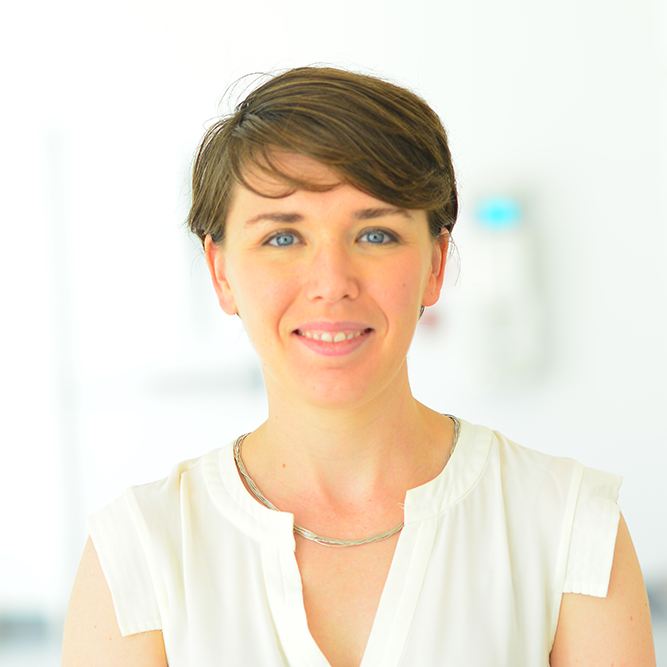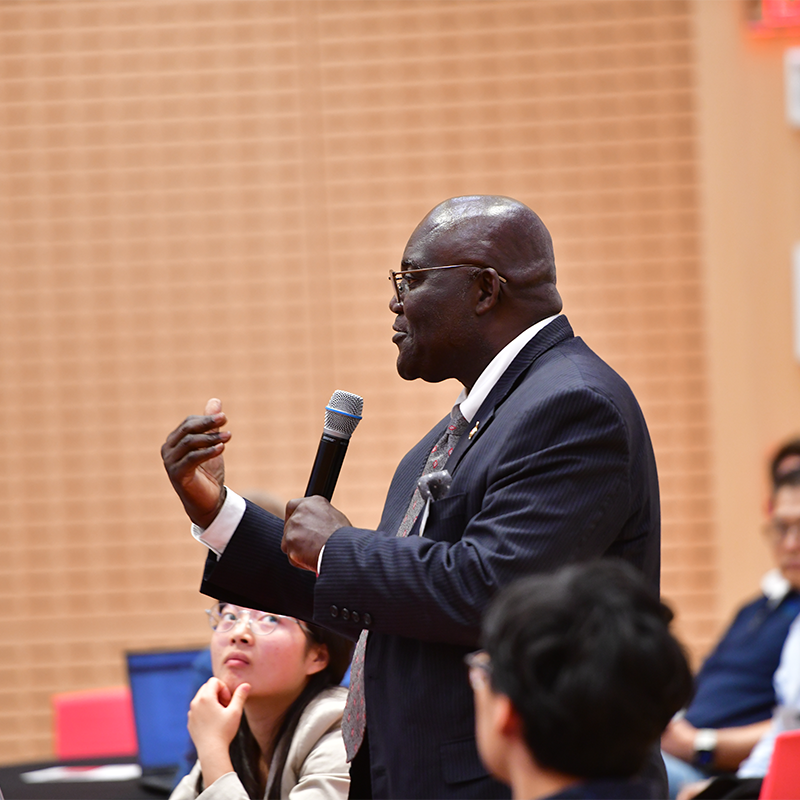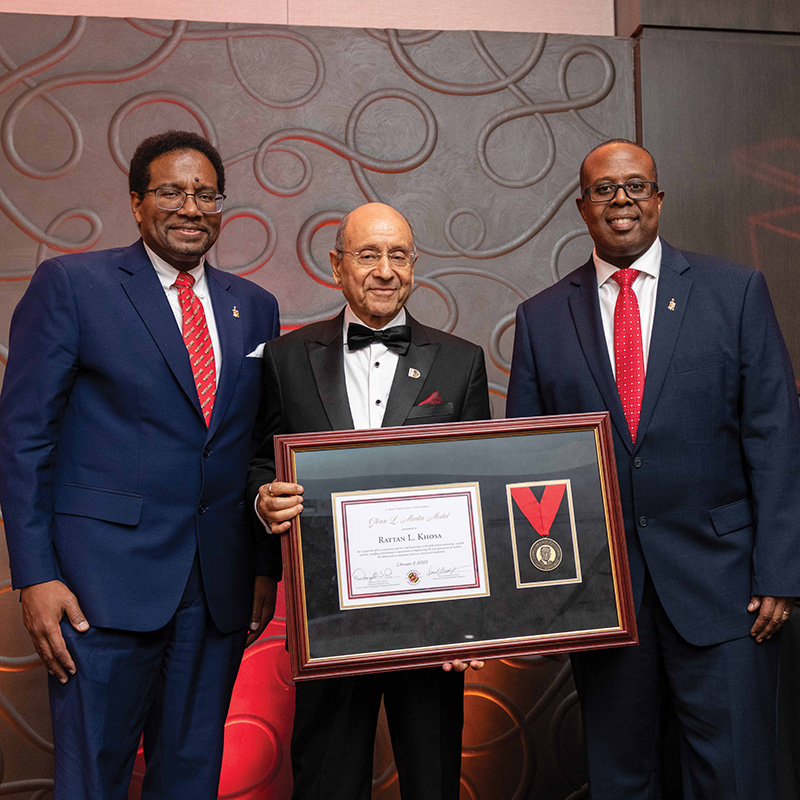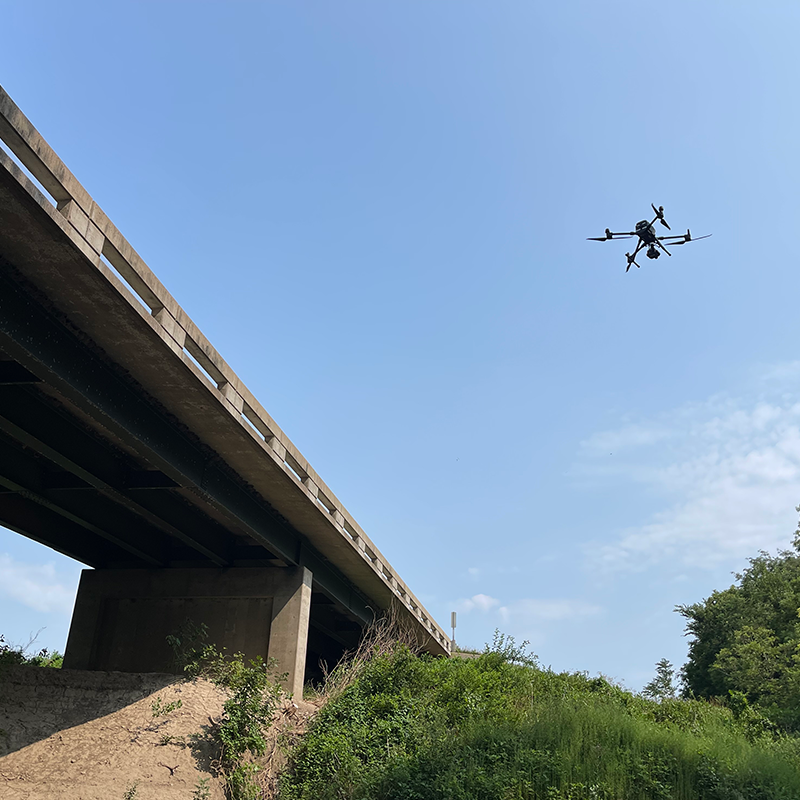News Story
Annushka Aliev: UMD Senior Has Global Perspective
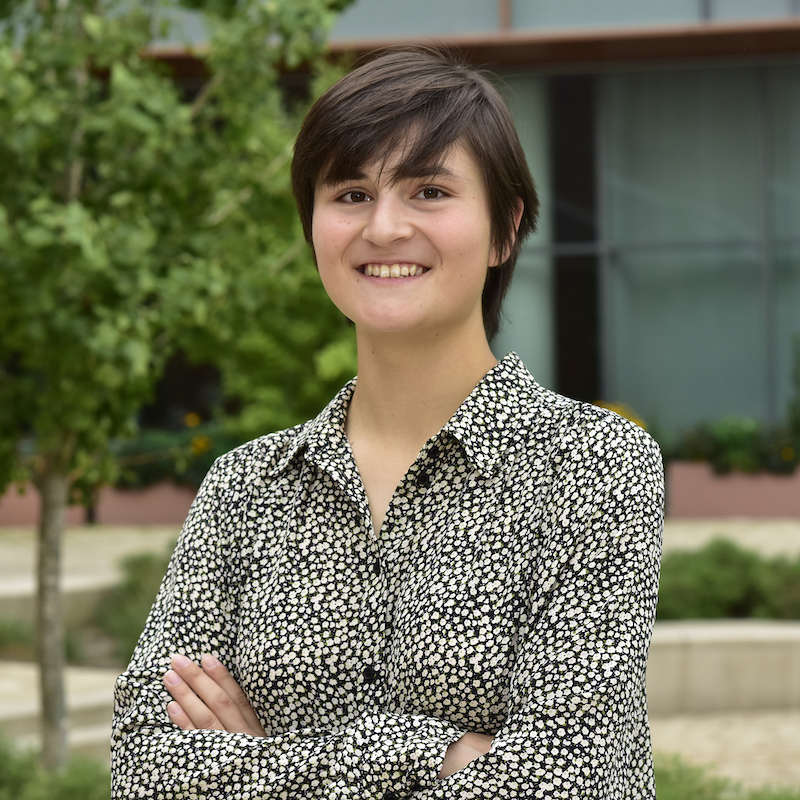
The need to protect communities from natural disasters has long been a concern for UMD senior Annushka Aliev. In high school, she decided to become a civil and environmental engineer after learning about the Haiti water crisis–and the role played by the 2010 earthquake.
Today, as she sets her sights on a professional career and eventual graduate degree, Aliev continues to explore the intersection between environmental hazards and infrastructure. Her generation of engineers, she says, will be tasked with coming up with solutions to the challenges posed by a changing climate, including droughts in some areas and flooding in others.
“A lot of our infrastructure here in the United States was designed based on rainfall data from the mid-20th century, and those patterns have changed,” she said. “What do we need to do to ensure that the infrastructure we’re building today can keep up with these changing conditions? How do we take what we have and make it safe for tomorrow? There are a lot of unknowns.”
“It’s a very salient area given its impact on people’s lives and livelihoods,” she said.
While completing her bachelor’s degree, the Frederick, Maryland native has honed her skills and expertise through her involvement with two major projects related to environmental impacts. Working with Clark Distinguished Chair Deb Niemeier and postdoctoral researcher Kelsea Best, she contributed to a study of air quality in Texas and its environmental justice implications. Among other work for the project, Aliev used spatial analysis to identify major emitters and track their impact on different demographic populations around the state.
More recently, she has assisted UMD CEE faculty members Alison Reilly and Birthe Kjellerup as part of a multi-institutional endeavor that aims to shed light on the risks posed by sea level rise to septic tank systems, which are widely used in rural, underprivileged, and often historically Black parts of Maryland.
Aliev is gaining valuable experience outside the classroom, as well, including leadership opportunities–she’s currently president of Engineers Without Borders (EWB), having previously served as social media tech chair and as the water systems sub-lead for an EWB project in Nakifuma, Uganda. She herself has traveled to Uganda to assist with the project, which aims to improve water supply and sanitation at a local school. As president, she has been working to launch workshops for EWB members who want to gain hands-on experience but aren’t able to travel overseas.
It’s the hands-on aspect of environmental engineering, in fact, that really cinched her decision to major in the field. “I knew I wanted to do something related to the environment, but policymaking isn’t where my heart lies,” she said. “Policy is tremendously important, but I’m more drawn to the technical side of things.”
"I like creating tangible solutions,” she said.
Published September 13, 2023



